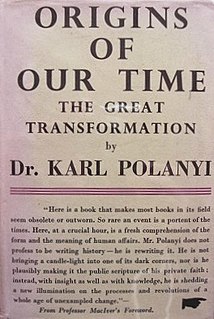Neoclassical economics is an approach to economics in which the production, consumption and valuation (pricing) of goods and services are observed as driven by the supply and demand model. According to this line of thought, the value of a good or service is determined through a hypothetical maximization of utility by income-constrained individuals and of profits by firms facing production costs and employing available information and factors of production. This approach has often been justified by appealing to rational choice theory, a theory that has come under considerable question in recent years.
Rational choice theory refers to a set of guidelines that help understand economic and social behaviour. The theory originated in the eighteenth century and can be traced back to political economist and philosopher, Adam Smith. The theory postulates that an individual will perform a cost-benefit analysis to determine whether an option is right for them. It also suggests that an individual's self-driven rational actions will help better the overall economy. Rational choice theory looks at three concepts: rational actors, self interest and the invisible hand.
The term Homo economicus, or economic man, is the portrayal of humans as agents who are consistently rational and narrowly self-interested, and who pursue their subjectively defined ends optimally. It is a word play on Homo sapiens, used in some economic theories and in pedagogy.
Evolutionary economics is part of mainstream economics as well as a heterodox school of economic thought that is inspired by evolutionary biology. Much like mainstream economics, it stresses complex interdependencies, competition, growth, structural change, and resource constraints but differs in the approaches which are used to analyze these phenomena.

Marshall David Sahlins was an American cultural anthropologist best known for his ethnographic work in the Pacific and for his contributions to anthropological theory. He was Charles F. Grey Distinguished Service Professor Emeritus of Anthropology and of Social Sciences at the University of Chicago.
Economic anthropology is a field that attempts to explain human economic behavior in its widest historic, geographic and cultural scope. It is an amalgamation of economics and anthropology. It is practiced by anthropologists and has a complex relationship with the discipline of economics, of which it is highly critical. Its origins as a sub-field of anthropology began with work by the Polish founder of anthropology Bronislaw Malinowski and the French Marcel Mauss on the nature of reciprocity as an alternative to market exchange. For the most part, studies in economic anthropology focus on exchange.

Economic sociology is the study of the social cause and effect of various economic phenomena. The field can be broadly divided into a classical period and a contemporary one, known as "new economic sociology".
In cultural anthropology, reciprocity refers to the non-market exchange of goods or labour ranging from direct barter to forms of gift exchange where a return is eventually expected as in the exchange of birthday gifts. It is thus distinct from the true gift, where no return is expected.

The Great Transformation is a book by Karl Polanyi, a Hungarian-American political economist. First published in 1944 by Farrar & Rinehart, it deals with the social and political upheavals that took place in England during the rise of the market economy. Polanyi contends that the modern market economy and the modern nation-state should be understood not as discrete elements but as the single human invention he calls the "Market Society".
The Moka is a highly ritualized system of exchange in the Mount Hagen area, Papua New Guinea, that has become emblematic of the anthropological concepts of "gift economy" and of "Big man" political system. Moka are reciprocal gifts of pigs through which social status is achieved. Moka refers specifically to the increment in the size of the gift; giving more brings greater prestige to the giver. However, reciprocal gift giving was confused by early anthropologists with profit-seeking, as the lending and borrowing of money at interest.
Substantivism is a position, first proposed by Karl Polanyi in his work The Great Transformation (1944), which argues that the term 'economics' has two meanings. The formal meaning, used by today's neoclassical economists, refers to economics as the logic of rational action and decision-making, as rational choice between the alternative uses of limited (scarce) means, as 'economising,' 'maximizing,' or 'optimizing.'
In cultural anthropology and sociology, redistribution refers to a system of economic exchange involving the centralized collection of goods from members of a group followed by the redivision of those goods among those members. It is a form of reciprocity. Redistribution differs from simple reciprocity, which is a dyadic back-and-forth exchange between two parties. Redistribution, in contrast, consists of pooling, a system of reciprocities. It is a within group relationship, whereas reciprocity is a between relationship. Pooling establishes a centre, whereas reciprocity inevitably establishes two distinct parties with their own interests. While the most basic form of pooling is that of food within the family, it is also the basis for sustained community efforts under a political leader.
Harold K. (Hal) Schneider (1925–1987), a seminal figure in economic anthropology, was born in 1925, in Aberdeen, South Dakota. He attended elementary and secondary school in St. Paul, Minnesota, and did his undergraduate work at Macalester College and Seabury-Western Theological Seminary, receiving a bachelor's degree in sociology, with a minor in biology, from Macalester in 1949. He then went to Northwestern University, where he was a student of Melville Herskovits, basing his dissertation on field research among the Pokot of Kenya.
Inclusive capitalism is a theoretical concept and policy movement that seeks to address the growing income and wealth inequality within Western capitalism following the financial crisis of 2007–2008 to improve business and society.
In psychology, economics and philosophy, preference is a technical term usually used in relation to choosing between alternatives. For example, someone prefers A over B if they would rather choose A than B. Preferences are central to decision theory because of this relation to behavior. Some methods such as Ordinal Priority Approach use preference relation for decision-making. As connative states, they are closely related to desires. The difference between the two is that desires are directed at one object while preferences concern a comparison between two alternatives, of which one is preferred to the other.
Peasant economics is an area of economics in which a wide variety of economic approaches ranging from the neoclassical to the marxist are used to examine the political economy of the peasantry. The defining feature of the peasants are that they are typically seen to be only partly integrated into the market economy - an economy which, in societies with a significant peasant population, is typically found to have many imperfect, incomplete or missing markets. Peasant economics treats peasants as something different from other farmers as they are not assumed to be simply small profit maximizing farmers; by contrast, peasant economics covers a wide range of different theories of peasant household behavior. These include various assumptions about the maximization of profits, risk aversion, drudgery aversion, and sharecropping. The assumptions, logic, and predictions of these theories are examined and the impact of subsistence is typically found to have important implications in terms of producers decisions about supply, consumption and price. Chayanov was an early proponent of the importance of understanding peasant behaviour arguing that peasants would work as hard as they needed in order to meet their subsistence needs, but had no incentive beyond those needs and therefore would slow and stop working once they were met. This principle, the consumption-labour-balance principle, implies that the peasant household will increase its work until it meets (balances) the needs (consumption) of the household. A possible implication of this view of peasant societies is that they will not develop without some external, added factor. Peasant economics has been seen as being an important area of study by some development economists, agricultural sociologists, and anthropologists.
In economics and economic sociology, embeddedness refers to the degree to which economic activity is constrained by non-economic institutions. The term was created by economic historian Karl Polanyi as part of his substantivist approach. Polanyi argued that in non-market societies there are no pure economic institutions to which formal economic models can be applied. In these cases economic activities such as "provisioning" are "embedded" in non-economic kinship, religious and political institutions. In market societies, in contrast, economic activities have been rationalized, and economic action is "disembedded" from society and able to follow its own distinctive logic, captured in economic modeling. Polanyi's ideas were widely adopted and discussed in anthropology in what has been called the formalist–substantivist debate. Subsequently, the term "embeddedness" was further developed by economic sociologist Mark Granovetter, who argued that even in market societies, economic activity is not as disembedded from society as economic models would suggest.
The archaeology of trade and exchange is a sub-discipline of archaeology that identifies how material goods and ideas moved across human populations. The terms “trade” and “exchange” have slightly different connotations: trade focuses on the long-distance circulation of material goods; exchange considers the transfer of persons and ideas.
The economistic fallacy is a concept originated by Karl Polanyi in the 1950s, that refers to fallacious conflation of human economy in general, with its market form. Whereas the former is a necessary component of any society, being the organization through which that society meets its physical wants, i.e. reproduces itself, the latter is a modern institution that is neither autonomous nor stable. The fallacy can occur either by narrowing the genus "economic" to merely market phenomena, or overextending "the market" to encompass all aspects of human economic activity. These moves can be seen as equating the conceptual content of "economics" with what is in fact mere form or ideology, instead of with the substance embodied by the specific decisive relations in which humans are engaged in any given period and locale.



